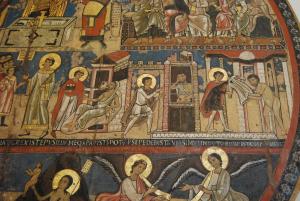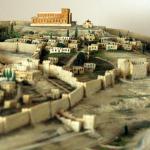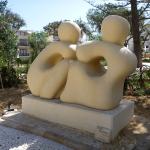
So many people have distorted the message of Jesus that they think salvation is about knowing the right facts and that those who don’t know them will be damned for eternity. Many atheists have picked up on this presentation of the Christian faith and have rightfully challenged it, saying if true, God would be unjust. Christ did not teach such an ideological approach to salvation. Indeed, he constantly confronted it. He pointed out how many of those who thought they were superior to others due to their external forms of piety or their knowledge were in the wrong, even as many who seemed to be far from religious and yet lived what his teachings were meant to suggest, would find themselves welcomed into the eternal kingdom of God. (cf. Matt. 25:31-45).
Charity, not knowledge, saves; if we over-emphasize knowledge, we end up creating ideologies which serve as the basis of conflict instead of promoting the love God wants out of us. Confusing faith with ideology not only promotes tribalism, it suggests that we can end up comprehending the truth, for ideologies rely upon their apparent comprehensibility as a means of promoting themselves.
Jesus told us that those who are to be blessed, those who are called great in the kingdom of God, are those who serve him by embracing love:
Well, the Gospel today tells us that the “blessed” are those who respond to these forms of poverty with love, with service: not by turning away, but by giving food and drink, clothing, sheltering, visiting; in a word, by being close to those in need. And this is because Jesus, our King who calls himself the Son of man, finds his favourite sisters and brothers in the most fragile women and men. His “royal court” is held where there are those who suffer and need help. This is the “court” of our King. And the style with which his friends, those who have Jesus for Lord, are called to distinguish themselves is his own style: compassion, mercy, tenderness. They ennoble the heart and descend like oil on the wounds of those wounded by life.[1]
This is not to say religious truths are unimportant; they have their place and value, but we must not become so focused on them that we ignore the greater truth which they are meant to point to, the truth of love. The message of the law and the prophets is the message of absolute love. Jesus confirmed, reiterated, and expanded upon that message. He told us that God loves us and desires us to engage that love, to love God back, for in that fashion, we will then find ourselves participating in the divine act of love. This is what eternal life is about: to participate in eternal love. To cut ourselves from love, which is what we do when we do not act upon it, is to cut ourselves off from God, and in this way, we can be said not to be “known” by God.
If we want to be known by God, we must open ourselves to love and act in and with it, doing what it leads us to do. We must love God, but beyond that, we most share with God God’s love for creation. If we participate in and with divine love, we will participate in God’s loving activity towards creation. We will share what we have received with others. We will take the mercy which we have been given and use it to offer mercy to others. If we are concerned about the state of our soul, we can judge it based upon how much we have cultivated love; the vices are all based upon the rejection or abuse of love in one fashion or another, and so to counter them, we must embrace the example of love given to us by Jesus:
The care of our soul, dearly beloved, is very much like earthly cultivation. Just as in land which is tilled some things are torn out and others are completely uprooted in order that what is good may be sown, so this should also be the case in our soul. Vices should be uprooted and virtues planted; what is harmful should be torn out and what is useful inserted. Pride should be torn out, humility planted; avarice thrown away, mercy kept; dissipation despised, chastity loved. Just as you cannot plant good things in your land unless you remove what is evil, so you cannot plant the holy shoots of virtues in your soul unless you tear out the thorns and thistles of vice. [2]
If we are focused exclusively on our own particular good, and try to develop it at the expense of others, we end up cutting ourselves from the fullness of the good. We end up embracing some vice like pride or greed which has us exclusively love ourselves. Certainly, we should love ourselves, because we are good and made in the image of God, who is all-good, but we should do so in an inclusive manner, sharing that love with others, lifting others up when they need it instead of pushing everyone down, thinking we can only get what we want if we deny it to others.
No matter how much theological study we have done, no matter how great an insight we might have to the mysteries of the faith, if we have not cultivated love, not just for ourselves, but for others, we have not properly understood the truth of the faith; we might be able to say many things about God, but we will show we do not know God because God is love. Those who know love and act upon it in their lives know God, even if they do not know God in a theological or religious manner. And because they know God in and through that love, God knows them. This is exactly the point Jesus was making when talking about the last judgment. This shows us the revolutionary aspect of Jesus’s teaching, as it undermines so much of the power-play which lies behind religion. We are shown God’s authority, Jesus’ authority, is bound with love, and so the real authority of religion itself is the authority of love. Love, not knowledge, is what Jesus will use as the basis of his judgments at the last judgment. If we want to be saved, if we are concerned about the salvation of others, we will be concerned about love and its dictates. We will look to Jesus and see how, through love, Jesus joins himself in solidarity with those in need, and so we will see him in them. We are beckoned by love to respond to the needs of others, to love them, and in that love, therefore, to find Christ in our midst:
Behold, dearly beloved, Christ comes. As I began to say before, that is, heavenly mercy daily comes to the door of your house; not only spiritually to your soul, but even physically to your home. Doubtless, Christ comes as often as a poor man approaches you, for He said: ‘As long as you did it for one of these, the least of my brethren, you did it for me.’ Therefore, do not let your heart be hardened; extend a coin to Christ, from whom you desire to receive a kingdom.[3]
We need mercy. We need love. Insofar as we open ourselves up to love and mercy by our actions, we will participate in in, and so find ourselves being lifted up by it. “For God is always merciful and lenient to that person who imitates Him in mercy, for the holy and the elect, the poor and the weak, all are in need of mercy, since not one of them can live in this life without sin.”[4] God is willing to be merciful and loving to all. It is not that God will deny us mercy; rather, we will deny it ourselves if we do not act in and with it in our actions. For, to have mercy, we must participate in it.
Are we open to mercy? Are we open to love? Are we truly following Christ and where he leads us through his demonstration of divine love? Do we truly understand that God’s power and authority is the power and authority of absolute love, a love which is bountiful and merciful? This is what Pope Francis would have us consider for ourselves:
So, brothers and sisters, let us ask ourselves: do we believe that true kingship consists in mercy? Do we believe in the power of love? Do we believe that charity is the most kingly manifestation of man, and is an indispensable requirement for the Christian? And finally, a particular question: am I a friend of the King, that is, do I feel personally involved in the needs of the suffering people I find on my path?[5]
[1] Pope Francis, Angelus (11-26-2023).
[2] St. Caesarius of Arles, Sermons Volume I (1-80). Trans. Mary Magdeleine Mueller, OSF (New York: Fathers of the Church, 1956), 41 [Sermon 6].
[3] St. Caesarius of Arles, Sermons Volume I, 134 [Sermon 26].
[4] St. Hildegard of Bingen, “Letter 307” in The Letters of Hildegard of Bingen. Volume III. Trans. Joseph L Baird and Radd K Ehrman (Oxford: Oxford University Press, 2004), 107.
[5] Pope Francis, Angelus (11-26-2023).













